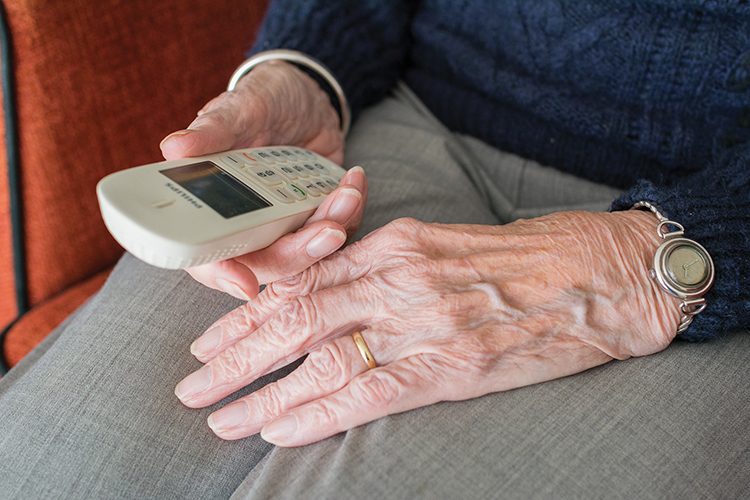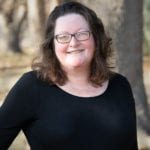
Home » Picking up phone may help seniors feel less isolated during outbreak
Picking up phone may help seniors feel less isolated during outbreak

April 14, 2020
As Tri-Citians adapt to a statewide order to stay at home to combat the spread of the coronavirus, organizations serving seniors are racing to support those hit heaviest by the new normal.
Those age 60 and over, particularly those with underlying conditions such as heart or lung disease, are the most vulnerable to COVID-19, the potentially deadly disease caused by the new virus.
The effort comes with a call to action for everyone: Pick up the phone.
Check in with family, friends and colleagues. Use the phone. Listen, attentively.
It is uncertain why seniors are most vulnerable and by extension, facing the most extreme forms of isolation.
“It just seems apparent that it affects older people more, especially those with lung or heart disease,” said Dr. Wayne McCormack, professor and division head and William E. Colson endowed chairman in gerontology at the University of Washington School of Medicine.
McCormack said it is “humbling” to contemplate the many questions that remain about coronavirus. It emerged in late 2019 and has spread to more than 100 countries.
Washington, with 2 percent of the U.S. population, had an outsized share of the nation’s confirmed cases, prompting severe measures to slow the spread to give medical professionals a fighting chance to handle overwhelming caseloads.
On March 23, Gov. Jay Inslee issued a Stay Home Stay Healthy order restricting nonessential activity and work. Schools are closed, as are restaurants, fitness centers and countless other gathering spots. Many construction sites are dark. Workers are staying home, telecommuting when possible.
McCormack said the coming months will be difficult, but he offered words of hope.
Most people who are diagnosed with COVID-19, even vulnerable seniors, will experience it as a bad cold. Most will recover.
McCormack said he’s encouraged by the unparalleled cooperation in the global medical community. He’s in constant contact with colleagues around the globe. Researchers from the U.S. to hard-hit Italy and China are freely sharing information and research, he said.
McCormack urges people to take the threat seriously and prescribes the now-common set of countermeasures—frequent hand washing, keeping a six-foot distance, avoiding social interaction and self-isolation, particularly when unwell.
The next few months will be difficult, but McCormack called himself an optimist.
“I know that’s not as much fun as getting together and having a hug. But this will pass,” he said.
“We’re taking it seriously. There is fear but there is remarkable collaboration and resilience in the American spirit.”
Tri-City efforts
Tri-City officials are scrambling to keep social distancing from isolating seniors.
Senior Life Resources Northwest, which operates the Mid-Columbia Meals on Wheels program, halted in-person dining and delivers meals to thousands of seniors on a weekly rather than daily basis.
It’s offsetting the lost contact with phone calls, said Grant Baynes, executive director of the Richland-based agency.
“One of our strengths is the social contact when drivers bring the meal. It can be more important than the meal,” he said. “The fear now is isolation for seniors will become more extreme as people step back into their own world.”
Baynes said Meals on Wheels encourages drivers to call their seniors, which is something it has not done in the past.
“We feel like that friendly voice from a known driver will be reassuring and more important than ever,” said Baynes, a career firefighter before joining Meals on Wheels.
He encourages everyone to reach out and maintain meaningful contact with older neighbors to ensure they’re part of the battle against coronavirus.
“I’d love for seniors to feel part of the solution and communicated as part of the solution,” he said. “It puts people into a more normal frame of mind to help others.”
Identifying seniors needing support
David Everett, president of the Richland Senior Association, said the Interagency Planning Group, or IPG, serving seniors is racing to identify seniors in the community who don’t have family nearby to ensure they have the support and supplies they need. The group is an association of Tri-City retirement centers.
“There are a thousand nonprofits in the Tri-Cities and they’re all trying to figure out something,” he said.
The nonprofit formed to foster activity and connections among seniors with a variety of activities it undertakes with the IPG. Monthly dances and potlucks, meetups, education programs and philanthropic outreach are on offering.
Or rather were. Coronavirus put a halt to all of that. Everett is worried.
“Isolation is deadly,” he said. “Isolation is like smoking 10 packs of cigarettes a day.”
But reaching people can be a challenge. About half the senior association’s 500 members don’t use computers, he said. They’re split between those living in group settings such as nursing homes, retirement centers and those in the community.
It’s the people in the community who don’t have family nearby who need contact and support.
The goal is to identify them and find out what they need, whether it is food or something else.
Local News
KEYWORDS april 2020





